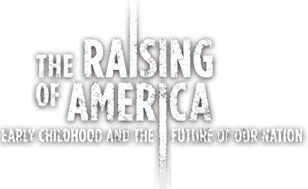International Data Sounds a Warning
to watch purchased videos
Add to Your Favorites
Remove from Your Favorites
Clip Transcript
NARRATOR: To imagine how the US will do tomorrow, we need only ask how its children are doing today. International data sounds a warning. Across multiple dimensions, the wellbeing of our children ranks 26 out of 29 nations. It all begins in infancy.
Parker, child:
A baby has a brain! We all have brains! They make you think… make you talk, make you walk…
Jack Shonkoff, Director, Center on the Developing Child at Harvard University:
The development of the brain is laid down in the early years well before children start school, even before they start talking. Everything starts from the bottom-up.
Parker:
The base holds everything up.
Jack Shonkoff:
If we don’t do it right early, it’s harder later. We pay more for it later and we don’t get as good an outcome.
NAR: 40% of our five year olds are not ready to learn when they enter kindergarten. 75% of all young adults are not qualified for military service. In 1970, the U.S. ranked 1st in high school and college graduation rates. Today we’ve fallen to 23rd in high school graduation, 19th in college graduation.
john a. powell, Director, Haas Institute for a Fair & Inclusive Society, UC Berkeley:
We say we’re a country that care about children. We may care in some abstract way but we won’t structure our economy and our systems to actually support them.
Judith Lichtman, Senior Advisor, National Partnership for Women & Families:
The damage to our youngest children is just incalculable, and the costs to society therefore are incalculable.
James Heckman, Nobel Laureate in Economics, 2000, University of Chicago:
These children right now are 3 and 4 are going to be 23 and 24 in 20 years. It’s not that far away. So yes we have a crisis, but we have an opportunity at the same time.
Dr. Renee Boynton-Jarrett, Pediatrician and Epidemiologist, Boston Medical Center:
As a society, we have the potential to do so much more than we realize we could do to support children. We can win by thinking as a larger village.


